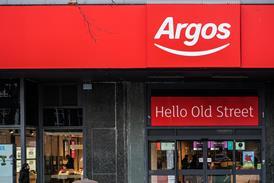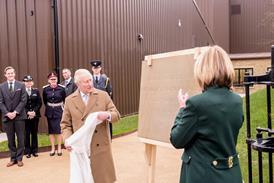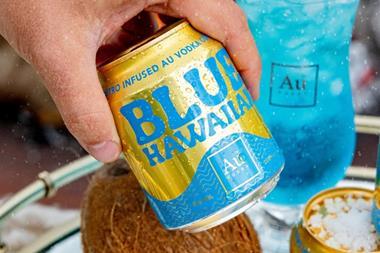Profits are down and there's even talk about laying off staff, but this weekend you and a few clients are off to a box at the races. Is it in bad taste? In these post-September 11 days, the idea of a "jolly" is considered too tactless by some, but corporate entertaining is really what the current buzzwords "customer relationship management" have always been about and proponents insist it fulfils the need for human contact in a corporate setting.
However, it still has a dubious reputation in some circles and a certain retailer won't even allow staff to accept a drink in the local pub from a customer for fear of accusations of bribery and corruption.
In its recent guidelines on corporate entertaining, the Law Commission suggests a clear distinction between entertaining to build business relationships with existing customers which is acceptable and entertaining which seeks to win new business by offering covert "bribes" in the form of corporate freebies. It warns that an invitation involving partners, such as an all-expenses-paid trip, might need to be disclosed to the taxman as a benefit in kind.
Legalities aside, the industry has become a £700m a year moneyspinner and is an extremely popular and integral part of most movers' and shakers' diaries, especially in the food and drink sector where enjoying the fruits of your labour seems particularly appropriate. It's estimated that, at some of the big sporting events, up to 20% of the tickets sold are to corporate clients.
The 1980s were the corporate hospitality industry's heyday when celebrating deals, achievement or the fact that there was an r' in the month was a way of life. Huge marquees were the height of corporate chic and hundreds of companies treated thousands of people to days out.
Since then the champagne flow has dried up a little and many corporate hospitality firms now go for quality rather than quantity, targeting events at fewer and select customers. However, it's not usually wise to drive to these events as there's nearly always a free-flowing bar which everyone's allowed to hit an invitation which still sometimes leads to over-imbibing and proved the downfall of one enthusiastic PR not long ago. Many organisers agree it's hard to talk to everyone at big events. More select gatherings make it easier. Time is tight and most business people are more picky about the invitations they accept let's face it, not many clients will really warm to you over a real ale at the regional darts championship.
Event organisers insist that recessionary times make it even more vital that companies look after their best clients and cement relationships. Neil MacLaurin, deputy md of Peter Parfitt Sport one of the leading corporate hospitality companies admits that, if things are tough, one of the first things to be cut is the entertainment budget "because it's intangible and almost impossible to evaluate".
But MacLaurin is convinced that corporate entertaining should be an integral part of a company's marketing plan. And, after all, if you're not doing it, your competitor might be. "In a busy company, you can lose sight of the people element. You can't beat a day out with clients as a great way to establish face-to-face contact and build relationships. When times are tough you could say that it's beneficial to know your customers better it's all about balance really."
The Corporate Events Association acknowledges that the days of "jollies and junkets" are over but says companies are spending more on entertaining each year.
Marketing director Tony Barnard explains the quality over quantity approach. "They're spending more because it's become a legitimate part of the marketing mix it's no longer a frivolous activity. Companies and their suppliers are working much closer together than before and there's a need to bond between these individuals."
To get them together, the hospitality business is always trying to think up more ingenious events and venues for client entertaining. Nowadays, a day out could involve speeding around Goodwood in a Ferrari or flying a helicopter in addition to the standard sporting fare. Musical events are also proving popular rock concerts as well as the more traditional Glyndebourne.
But a few lucky execs probably had one of the best trips four years ago when they were treated to the Grand Prix at Silverstone and then taken by private jet to Paris for the football World Cup final.
Barnard agrees that stressed staff want that bit extra now perhaps a participatory event such as a golf day or white water rafting or demand a USP to a standard event, such as a new style of catering. And, in a bid to make functions even more attractive, partners are often invited and events can take place in the evening or at a weekend because a day trip is seen as encroaching on valuable work time. He says the trend is to ensure that functions are tailored to clients' tastes.
Some City firms have events managers who compile a database on clients' personal preferences so, for example, by entering the word "ballet", invitations can be directed at those who are interested in dance, not rugby.
It's worth bearing in mind also that if someone's at the wrong kind of event, they'll be more likely to prop up the bar than take an interest, with the risk of bad behaviour.
Rugby fan Robert Smith, managing director of the Dutch Meat Board, appreciates not being asked to cricket matches and generally only has time to attend a fraction of the events to which he is invited.
The Dutch Meat Board does a little corporate entertaining, but Smith says he recently turned down £595 ticket packages for a rugby match, to take clients to a rival match, "a dodgy hot dog" and a post-game curry. "No airs and graces it's more relaxed."
At functions Smith prefers to socialise than talk business and sees them as a way of getting to know people better rather than nailing deals. "You're on neutral territory so you can get a better feel for people."
Paul Fox, Gillette's communications director, reckons they're a great way of spending quality time with valued customers although most people are too busy to take time out for them during the week. He appreciates it if the host has put some thought into the day and has picked an event which is relevant.
And Safeway's communications director Kevin Hawkins agrees that it's a chance to have a relaxed chat and says business isn't usually discussed.
The supermarket chain holds a couple of corporate events and he says it's an opportunity to say thank you to suppliers, consumers, staff, the City and the media. It can also be a "shop window" for the launch of a product or initiative.
Hawkins receives many invitations but generally does not have the time to go. It's a common complaint and one which Henrik Nygaard, Arla's business development controller, identifies with. He gets a couple of invitations a week and turns down about 90% of them, partly because the firm is in Leeds and most events are London-based. "The majority are to do with drinking and I'm too old to go to London just to do that," he admits.
Nygaard likes prestige events to which his wife is also invited, such as Wimbledon. But he has a healthy cynicism for corporate entertaining, emphasising: "There's no such thing as a free lunch, you often end up having to speak to people you don't want to speak to, or people who want to sell you something you don't want to buy."
The CEA says it's now taboo to use events to gain business from potential clients which is a view supported by the Dutch Meat Board's Smith. "I've turned things down from people who are not clients or customers because I felt it wouldn't be fair. I'd feel more comfortable if I knew them."
Nygaard echoes this, saying that although companies realise they don't invite clients to get new business, useful contacts can be made.
He recounts a salutary lesson for party throwers: "We were invited by our then promotions agency to an awards do we didn't win anything but one Scottish agency did. We all got hammered and ended up talking to the Scottish firm in the bar. Two days later a Scottish guy rang who said he remembered meeting us. The agency came in for a serious session and eventually took over the business from the promotions agency which took us to the do."
Despite its pitfalls, the industry seems able to weather recession and retain its popularity. Says MacLaurin: "In 1991, a very tough trading year, we found we were getting more direct retail bookings." Many less successful firms went to the wall and MacLaurin believes that if recession hits again, much of the dead wood will be cleared out.
He predicts more consolidation in the industry and plans to offer flexibility with different tiers of hospitality. "The market's awash with corporate hospitality companies and agencies, yet there's enough business to go round." n
{{FEATURES }}
Close menu
- Home
- Retail & Wholesale
-
Products & Suppliers
- Back to parent navigation item
- Products & Suppliers
-
Product Categories:
- Back to parent navigation item
- Product Categories:
- Alcoholic drinks
- Bakery
- Cereals & breakfast
- Cheese
- Chicken & poultry
- Chocolate
- Confectionery
- Crisps, nuts & snacks
- Dairy
- Fish
- Fresh produce
- Frozen
- Household
- Meat
- Own Label
- Sauces & condiments
- Seasonal
- Soft drinks
- Vaping
- Vegan & plant-based
- World foods
- Suppliers
- People
- Reports & Data
-
Topics A-Z
- Back to parent navigation item
- Topics A-Z
-
Popular topics:
- Back to parent navigation item
- Popular topics:
- Cost of living crisis
- Crime
- Deposit Return Schemes
- Finance
- Government & Regulation
- Health
- Inflation
- Loyalty
- Marketing
- Mergers & Acquisitions
- New Product Development
- Sourcing
- Supply chain
- Sustainability & environment
- Technology
- Ultra Processed Foods
- Vaping
- A-Z all topics
- Content by type:
- Events
- Ask iA (beta)
- Subscribe now
Sign in to comment on this article
Not logged in before? Register for FREE guest access today.
You will be able to:
- Read more stories
- Receive daily newsletters
- Comment on stories
Advert














No comments yet